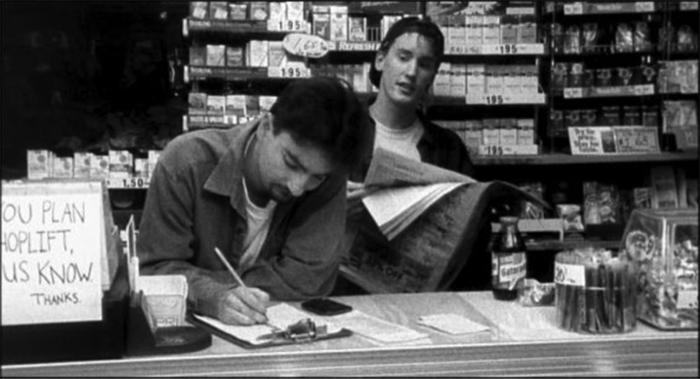
Like films that have come before it, the narrative of the service comedy closely follows not only the action, but also the lack thereof, in order to emphasize the miniscule and seemingly insignificant details. This narrative strategy mirrors the audience’s own personal experiences on the job.
The humor within the film comes from the absurdity of everyday life as it’s juxtaposed with the mundane. This approach can also be seen in films that epitomize the service comedy, such as “Clerks” (1994) and “Waiting …” (2005). Unlike its predecessors, however, “Support the Girls” includes additional elements of drama and a critique of capitalism that adds complexity.
Lisa, played by Regina Hall, is faced with her own limitations that come from the emotional strain of being the overworked and at times unappreciated manager. This sobering inclusion of self-analysis and introspection allows the film to deepen and transcend the service comedy and emerge as a fresh take.

In “Waiting …” we meet Dean, a disillusioned and directionless waiter played by Justin Long, who contemplates the trajectory of his life and his own agency within it when he’s offered a promotion at the cheesy chain restaurant Shenaniganz. The film humorizes the contrast of the ragtag waitstaff between their interactions with demanding customers and the goings on behind closed kitchen doors.
Although Dean does makes attempts at introspection in “Waiting …”, he ultimately remains dissatisfied within his current position and simply quits the job that makes him unhappy. The act of quitting is a common plot device used as a pseudo-resolution to the protagonist’s inner conflict in service comedies.
In “Support the Girls” we constantly ask: Will Lisa quit? Or will she challenge the status quo by remaining loyal to the girls who have come to rely on her as the backbone of the restaurant?

Between pondering excuses to close the Quick Stop convenience store doors, and juggling girlfriends and ex-girlfriends, both alive and dead, Dante drags his feet in decision making and blames Randal for the misfortunes that ensue, all while business continues as usual.
Scenes of escapisms are included in both “Clerks” and “Support the Girls” as the pressures of the service industry mount upon the shoulders of both Dante and Lisa. However, “Support the Girls” ventures from the use of a stock male youth as the protagonist who only further isolates himself. Dante’s character epitomizes this standard in “Clerks” through his dissociation from his own feelings, as he attempts to distract himself from his dissatisfaction with half-baked schemes.
In “Support the Girls,” we again watch to see if the conventions are disrupted. When Lisa indulges in moments of escapism, does that signal distraction and isolation? Or does it actually contribute to the bond she is forging with her coworkers, as they all participate in a break from the chaos?
Rachael Stubbert serves as the Filmworks communications intern for fall 2018. She studies English Literature at Fresno State.
